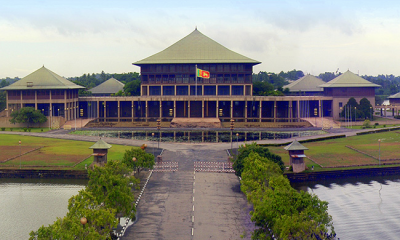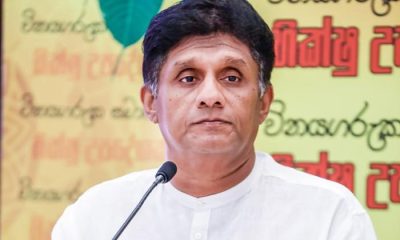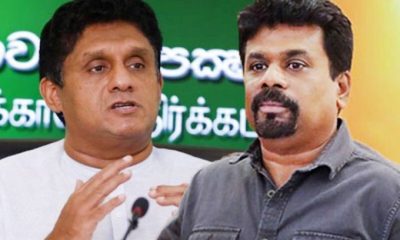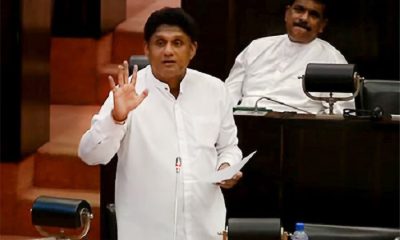Opinion
New law better than existing one, but there’s long way to go
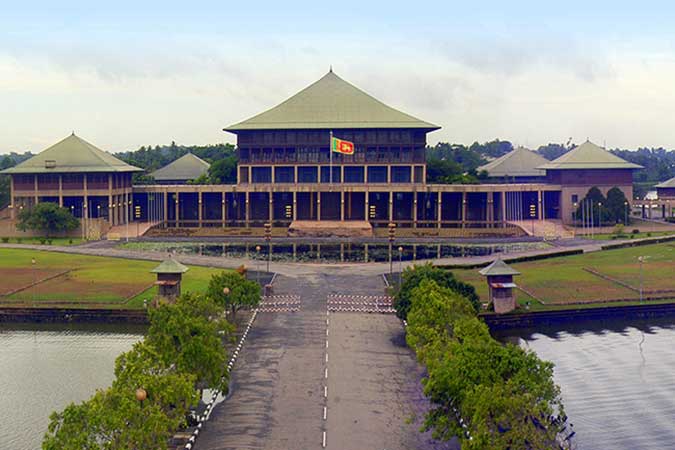
Battle against corruption:
(Opposition and SJB Leader Sajith Premadasa’s speech on the Anti-Corruption Bill)
Mr. Speaker, I believe that today is a day of positive change in our country after a struggle. Today, we are taking a significant step forward and this is an important day to initiate action to eliminate corruption, fraud and theft, which have become a curse to this country, from society, government and non-governmental bodies.
This is much better than the situation prevailed so far. However, there are many serious questions about whether this forward journey is sufficient. I would like to say at the outset that the Hon. Ranjith Madduma Bandara, the general secretary of our party, introduced an anti-corruption bill a few years ago. That bill is stronger than the bill under consideration today. But, Hon. Minister of Justice, the sad fact is that you did not gazette it. However, a Bill promoted by Kaputa to call back the members of the dissolved local government bodies and give them power has been gazetted! The bill presented by the Samagi Jana Balawega was relegated to the dustbin.
Mr. Speaker, within a few days from 26.06.2023, when the private bill of recalling the local government members was gazetted, it was read for the first time on 07.05.2023. The government has so much interest in recalling the members of the local government bodies that were dissolved without an election. A shameless act. I would like to make this point in particular. The new bill that you are bringing is better than the current situation. I look at the bill optimistically. But have we gone far enough? The country is bankrupt; the resources of the country have been destroyed; resources of the local, common people have been stolen; those resources have been looted. Hon. Speaker, they have looted the country. The family has looted the country. One family has come together and caused a massive destruction in this country. At a time when theft, fraud, corruption and robbery have been brought to the top of the national agenda, we would like to say that there should be a positive change in this system.
Mr. Speaker, this bill should have been brought as soon as the incumbent government came to power. But why are they presenting this bill today? This is done to fulfill a condition of the IMF. They have implemented this programme only as one item in the ‘to do list’ of the IMF in granting its Extended Fund Facility so that the government is supposed to pass this bill and put a tick in the box against that item in the said ‘to do list’.
Mr. Speaker, I would like to make it very clear at this instant that the Supreme Court has stressed the need to introduce a number of amendments, nearly 29, to this bill. Apart from that, we have submitted more than 53 amendments. When we submitted the amendments in the Ministerial Consultative Committee from our side, the government also submitted a number of other amendments. About 88 amendments have been submitted.
75% of the amendments we proposed have been accepted. But serious concerns have been spelt out in the remaining list of 25% that has been rejected. What are the rejected proposals Hon. Minister? We suggested that this law should be implemented with retrospective effect. In particular, we have suggested that the United Nations Convention against Corruption should be implemented from the date Sri Lanka ratified it. The government has rejected those amendments. We have proposed to implement the amendment called Recovery of Stolen Assets. The government has rejected that amendment too. Similarly, we have submitted amendments to make a clear, positive and lawful change in the process related to withdrawal of indictments. But the government has refused that too.
In particular, I would like to ask whether you are going to enact this bill only because the IMF asks us to do so and, therefore, you all have to put a tick in the box against that item in the ‘to do list’ of the IMF. This positive change should happen only based on an honest political will. We have a serious question as to whether this Act is being implemented based on the rational idea that a more transparent, good, pure and honest governance should be established through this transformation.
At this time, we would like to make it very clear that we hope to implement a number of more progressive and positive measures to prevent corruption in a future SJB government, and the SJB itself. We will certainly introduce legal reforms to impose severe punishments to those involved in fraud and corruption. Also, we declare at this instant that we will take the responsibility of implementing the legal system to recover the resources lost to the country through illegal acquisitions.
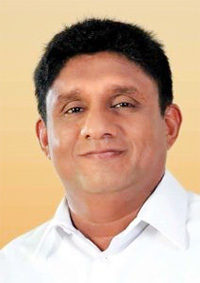
Sajith Premadasa
Mr. Speaker, the President of this country said the other day that all should work for the country on the basis of national interest, putting aside politics and narrow political differences.
Today, we are talking about introducing a new anti-corruption bill. However, one among these 225 MPs has smuggled gold, smartphones worth, I think, about 78 million rupees. But only a penalty of 10 percent or 7.5 million rupees has been imposed for that fraudulent act. But, when a Frenchman smuggled gold worth 80 million rupees into our country, he was fined 70 million rupees. It is in such a country that we are bringing new laws to eliminate theft. Mr. Speaker, the 22 million people of this country are laughing at this.
I remember that at the Party Leaders’ meeting you chaired, it was mentioned that everyone should come together and decide that the MP should be removed regardless of his party affiliations. You only said that, without ever putting it into practice. The reason is that the vote of that member is also necessary for the existence of this government. It is in such a situation that we are talking about an anti-corruption bill today.
The President invites us to join hands with him for the national interest. I would like to ask whether we are supposed to join hands to catch the thieves or to save them. Are we joining together to keep the people alive, or to destroy people’s lives? Are we going to team up to catch Pandora Paper thieves or to save them? Are we to catch or save sugar tax swindlers, substandard gas scammers, garlic swindlers, coconut oil tricksters? I would especially like to ask whether you are inviting us to capture or save those who killed Lasantha Wickramatunga. Are you asking us to unite to arrest and save those who launched the violence against Journalists of this country, including Upali Tennakon?
Mr. Speaker, when I was considering this proposal, I was able to read something revealed by WikiLeaks. At that time, the American ambassador in this country, Mr. Robert O. Blake sends the following message to the Foreign Ministry of his country, the USA. Mr. Yashushi Akashi had stated at that time as follows. It says, ‘in response to a private exhortation by the then Opposition Leader Wickremesinghe for Japan to suspend its economic assistance, Akashi told Wickremesinghe, and later reiterated publicly that the Sri Lankan people should not be punished “for acts of commission and omission by their leaders.” WikiLeaks reveals that Robert O Blake had sent a statement Mr. Yashushi Akashi made to the heads of the US Foreign Ministry. Now are you asking us to unite for the sake of national interests only to send such messages to other countries asking them not to help our country?
Hon. Speaker, I would like to mention with responsibility that every time we meet international institutions, representatives, political institutions, and financial institutions, the Samagi Jana Balawegaya and the Samagi Jana Sandanaya have asked them always to provide the best possible assistance to the 22 million people of this country, and those arrangements should also be implemented with transparency.
There is only one thing to say. I would also like to mention this point at this time. They say that they will help me to become the President and, meanwhile, to retain the position of Opposition Leader. I know very well how they helped me to become the President in 2019 joining hands with Gotabaya Rajapaksa. I don’t need that help. I think that where we go and where we stop should not be decided by political deals or in a culture of deals. I would like to mention that it should be done through the vote of 22 million people in this country.
Also, I would like to say that I have no need or hope to warm the chair of the opposition leader for 21 years. But I would like to say one thing. While talking about the 75-year history of this country, I would like to clearly state that for the first time as an opposition, we have added value to this country. In the health sector, hospital equipment and medicines worth Rs. 171.9 million have been donated to 56 hospitals.
We have fulfilled our national responsibility and duty for the country, nation and the land. We have donated buses worth Rs. 349.2 million to 72 government schools. Rs. 29 million worth of IT equipment – computers, smart boards, printers – have been donated to 33 schools in our school system.
Also, this fact should be stated at this time. Until today, we have not had any obstacles from the current President in carrying out this mission. While criticising where there is reason to criticise, we should also see the good side of a person where there is good. We remember very well the request the incumbent President made from the Opposition Leader at the time he was the Prime Minister to assist for the good of the country.
Mr. Speaker, we have shown how to help the country. We do not want to burden the country by undertaking Ministerial portfolios. We have implemented the maximum number of projects that we can do by using our strength, backbone, personality, ability, knowledge, local and foreign connections. We have accomplished these activities through the Sakwala Bus Programme, Sakwala Information Technology Programme and Husmak Programme.
I would like to state at this time that we are going where we need to go, not with political deals, but honestly with the blessings of the people. Hon. Speaker, Finally, I make a very kind request to you. After listening to the speeches made in this chamber, we need to think about these programmes further. At this time I will present a 35 second audio clip with a statement from a certain person. Everyone please listen to it.
Hon. Speaker, I will tell you the reason for presenting the audio tape. Early this morning, a group of people made big talks about bankrupting the country. They, in the past, likened Gotabaya Rajapaksa, who was supposed to build this country, to Lee Kuan Yew of Singapore. Local Lee Kuan Yew has bankrupted and destroyed the country and what are they going to do now? Now they are trying to conceal previous mistakes.
They come early in the morning and relate big stories that everyone should be held accountable for bankrupting the country. I am clearly saying that the rating agencies of Fitch, Moody’s and Standard & Poors downgraded our country because of the 600-700 billion tax concessions granted to the wealthy in this country. According to the information we have gathered, we have been downgraded even today in the credit rating.
You delivered big talks about domestic debt restructuring. The country has been downgraded in credit ratings even today. The bankruptcy of our country started because the government revenue was lowered from 12% to 8% as a percentage of the gross domestic product under the blessings of all on your side. The IMF was kicked out. Not only were they kicked out, you also refused 100 million dollars. Reasons are the so-called patriotism, pride and nationalism. They were chased away then, but today you all raise your hands to what the IMF says. We say we should go to the IMF.
But every agreement with the IMF should be entered into for the well-being and development of the people of this country. I respectfully request our Prime Minister to agree to the proposed amendments and help catch the thieves who have stolen country’s assets.
The United Nations also has a Stolen Assets Recovery Initiative and a Stolen Assets Recovery Programme. Let’s work towards recovering funds and other assets the country has lost due to frauds exposed by Pandora papers, etc. Also, I suggest that we use those resources to create a National Wealth Fund similar to ones in operation in the developing countries of the world.
While making the proposal to move towards a corruption-free country through that National Wealth Fund, in a programme that will protect the present and future generations, I would like to state that we are committed to creating a corruption-free country by using all the strength of Samagi Jana Balawegaya and Samagi Jana Sandanaya. I would like to reiterate that this law is better than the existing one. However, there is still a long way to go. I appeal to the Prime Minister to agree to the relevant amendments before the end of the day in order to go the full length. Thank you.
Opinion
Child food poverty: A prowling menace
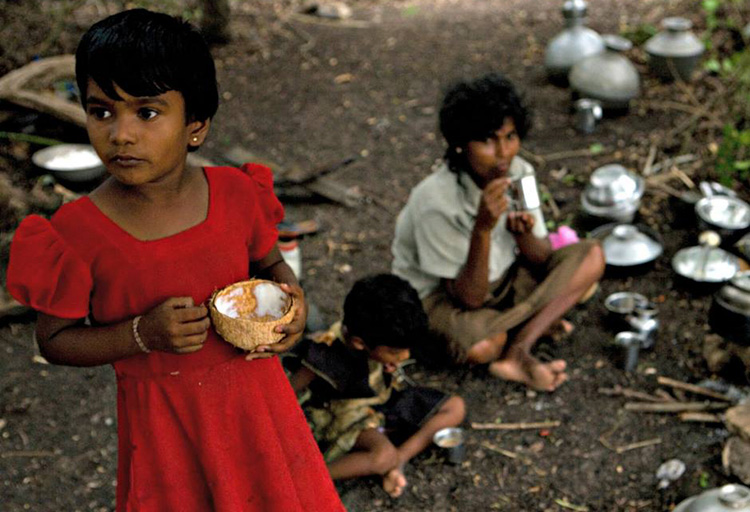
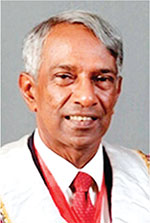 by Dr B.J.C.Perera
by Dr B.J.C.Perera
MBBS(Cey), DCH(Cey), DCH(Eng), MD(Paed), MRCP(UK), FRCP(Edin),
FRCP(Lon), FRCPCH(UK), FSLCPaed, FCCP, Hony FRCPCH(UK), Hony. FCGP(SL)
Specialist Consultant Paediatrician and Honorary Senior Fellow,
Postgraduate Institute of Medicine, University of Colombo, Sri Lanka.
Joint Editor, Sri Lanka Journal of Child Health
In an age of unprecedented global development, technological advancements, universal connectivity, and improvements in living standards in many areas of the world, it is a very dark irony that child food poverty remains a pressing issue. UNICEF defines child food poverty as children’s inability to access and consume a nutritious and diverse diet in early childhood. Despite the planet Earth’s undisputed capacity to produce enough food to nourish everyone, millions of children still go hungry each day. We desperately need to explore the multifaceted deleterious effects of child food poverty, on physical health, cognitive development, emotional well-being, and societal impacts and then try to formulate a road map to alleviate its deleterious effects.
Every day, right across the world, millions of parents and families are struggling to provide nutritious and diverse foods that young children desperately need to reach their full potential. Growing inequities, conflict, and climate crises, combined with rising food prices, the overabundance of unhealthy foods, harmful food marketing strategies and poor child-feeding practices, are condemning millions of children to child food poverty.
In a communique dated 06th June 2024, UNICEF reports that globally, 1 in 4 children; approximately 181 million under the age of five, live in severe child food poverty, defined as consuming at most, two of eight food groups in early childhood. These children are up to 50 per cent more likely to suffer from life-threatening malnutrition. Child Food Poverty: Nutrition Deprivation in Early Childhood – the third issue of UNICEF’s flagship Child Nutrition Report – highlights that millions of young children are unable to access and consume the nutritious and diverse diets that are essential for their growth and development in early childhood and beyond.
It is highlighted in the report that four out of five children experiencing severe child food poverty are fed only breastmilk or just some other milk and/or a starchy staple, such as maize, rice or wheat. Less than 10 per cent of these children are fed fruits and vegetables and less than 5 per cent are fed nutrient-dense foods such as eggs, fish, poultry, or meat. These are horrendous statistics that should pull at the heartstrings of the discerning populace of this world.
The report also identifies the drivers of child food poverty. Strikingly, though 46 per cent of all cases of severe child food poverty are among poor households where income poverty is likely to be a major driver, 54 per cent live in relatively wealthier households, among whom poor food environments and feeding practices are the main drivers of food poverty in early childhood.
One of the most immediate and visible effects of child food poverty is its detrimental impact on physical health. Malnutrition, which can result from both insufficient calorie intake and lack of essential nutrients, is a prevalent consequence. Chronic undernourishment during formative years leads to stunted growth, weakened immune systems, and increased susceptibility to infections and diseases. Children who do not receive adequate nutrition are more likely to suffer from conditions such as anaemia, rickets, and developmental delays.
Moreover, the lack of proper nutrition can have long-term health consequences. Malnourished children are at a higher risk of developing chronic illnesses such as heart disease, diabetes, and obesity later in life. The paradox of child food poverty is that it can lead to both undernutrition and overnutrition, with children in food-insecure households often consuming calorie-dense but nutrient-poor foods due to economic constraints. This dietary pattern increases the risk of obesity, creating a vicious cycle of poor health outcomes.
The impacts of child food poverty extend beyond physical health, severely affecting cognitive development and educational attainment. Adequate nutrition is crucial for brain development, particularly in the early years of life. Malnutrition can impair cognitive functions such as attention, memory, and problem-solving skills. Studies have consistently shown that malnourished children perform worse academically compared to their well-nourished peers. Inadequate nutrition during early childhood can lead to reduced school readiness and lower IQ scores. These children often struggle to concentrate in school, miss more days due to illness, and have lower overall academic performance. This educational disadvantage perpetuates the cycle of poverty, as lower educational attainment reduces future employment opportunities and earning potential.
The emotional and psychological effects of child food poverty are profound and are often overlooked. Food insecurity creates a constant state of stress and anxiety for both children and their families. The uncertainty of not knowing when or where the next meal will come from can lead to feelings of helplessness and despair. Children in food-insecure households are more likely to experience behavioural problems, including hyperactivity, aggression, and withdrawal. The stigma associated with poverty and hunger can further exacerbate these emotional challenges. Children who experience food poverty may feel shame and embarrassment, leading to social isolation and reduced self-esteem. This psychological toll can have lasting effects, contributing to mental health issues such as depression and anxiety in adolescence and adulthood.
Child food poverty also perpetuates cycles of poverty and inequality. Children who grow up in food-insecure households are more likely to remain in poverty as adults, continuing the intergenerational transmission of disadvantage. This cycle of poverty exacerbates social disparities, contributing to increased crime rates, reduced social cohesion, and greater reliance on social welfare programmes. The repercussions of child food poverty ripple through society, creating economic and social challenges that affect everyone. The healthcare costs associated with treating malnutrition-related illnesses and chronic diseases are substantial. Additionally, the educational deficits linked to child food poverty result in a less skilled workforce, which hampers economic growth and productivity.
Addressing child food poverty requires a multi-faceted approach that tackles both immediate needs and underlying causes. Policy interventions are crucial in ensuring that all children have access to adequate nutrition. This can include expanding social safety nets, such as food assistance programmes and school meal initiatives, as well as targeted manoeuvres to reach more vulnerable families. Ensuring that these programmes are adequately funded and effectively implemented is essential for their success.
In addition to direct food assistance, broader economic and social policies are needed to address the root causes of poverty. This includes efforts to increase household incomes through living wage policies, job training programs, and economic development initiatives. Supporting families with affordable childcare, healthcare, and housing can also alleviate some of the financial pressures that contribute to food insecurity.
Community-based initiatives play a vital role in combating child food poverty. Local food banks, community gardens, and nutrition education programmes can help provide immediate relief and promote long-term food security. Collaborative efforts between government, non-profits, and the private sector are necessary to create sustainable solutions.
Child food poverty is a profound and inescapable issue with far-reaching consequences. Its deleterious effects on physical health, cognitive development, emotional well-being, and societal stability underscore the urgent need for comprehensive action. As we strive for a more equitable and just world, addressing child food poverty must be a priority. By ensuring that all children have access to adequate nutrition, we can lay the foundation for a healthier, more prosperous future for individuals and society as a whole. The fight against child food poverty is not just a moral imperative but an investment in our collective future. Healthy, well-nourished children are more likely to grow into productive, contributing members of society. The benefits of addressing this issue extend beyond individual well-being, enhancing economic stability and social harmony. It is incumbent upon us all to recognize and act upon the understanding that every child deserves the right to adequate nutrition and the opportunity to thrive.
Despite all of these existent challenges, it is very definitely possible to end child food poverty. The world needs targeted interventions to transform food, health, and social protection systems, and also take steps to strengthen data systems to track progress in reducing child food poverty. All these manoeuvres must comprise a concerted effort towards making nutritious and diverse diets accessible and affordable to all. We need to call for child food poverty reduction to be recognized as a metric of success towards achieving global and national nutrition and development goals.
Material from UNICEF reports and AI assistance are acknowledged.
Opinion
Do opinion polls matter?
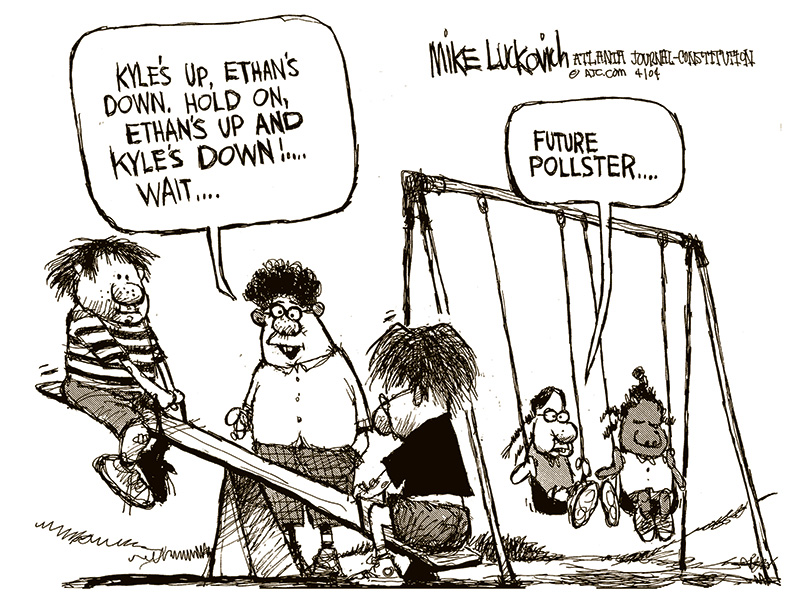
By Dr Upul Wijayawardhana
The colossal failure of not a single opinion poll predicting accurately the result of the Indian parliamentary election, the greatest exercise in democracy in the world, raises the question whether the importance of opinion polls is vastly exaggerated. During elections two types of opinion polls are conducted; one based on intentions to vote, published during or before the campaign, often being not very accurate as these are subject to many variables but exit polls, done after the voting where a sample tally of how the voters actually voted, are mostly accurate. However, of the 15 exit polls published soon after all the votes were cast in the massive Indian election, 13 vastly overpredicted the number of seats Modi’s BJP led coalition NDA would obtain, some giving a figure as high as 400, the number Modi claimed he is aiming for. The other two polls grossly underestimated predicting a hung parliament. The actual result is that NDA passed the threshold of 272 comfortably, there being no landslide. BJP by itself was not able to cross the threshold, a significant setback for an overconfident Mody! Whether this would result in less excesses on the part of Modi, like Muslim-bashing, remains to be seen. Anyway, the statement issued by BJP that they would be investigating the reasons for failure rather than blaming the process speaks very highly of the maturity of the democratic process in India.
I was intrigued by this failure of opinion polls as this differs dramatically from opinion polls in the UK. I never failed to watch ‘Election night specials’ on BBC; as the Big Ben strikes ‘ten’ (In the UK polls close at 10pm} the anchor comes out with “Exit polls predict that …” and the actual outcome is often almost as predicted. However, many a time opinion polls conducted during the campaign have got the predictions wrong. There are many explanations for this.
An opinion poll is defined as a research survey of public opinion from a particular sample, the origin of which can be traced back to the 1824 US presidential election, when two local newspapers in North Carolina and Delaware predicted the victory of Andrew Jackson but the sample was local. First national survey was done in 1916 by the magazine, Literary Digest, partly for circulation-raising, by mailing millions of postcards and counting the returns. Of course, this was not very scientific though it accurately predicted the election of Woodrow Wilson.
Since then, opinion polls have grown in extent and complexity with scientific methodology improving the outcome of predictions not only in elections but also in market research. As a result, some of these organisations have become big businesses. For instance, YouGov, an internet-based organisation co-founded by the Iraqi-born British politician Nadim Zahawi, based in London had a revenue of 258 million GBP in 2023.
In Sri Lanka, opinion polls seem to be conducted by only one organisation which, by itself, is a disadvantage, as pooled data from surveys conducted by many are more likely to reflect the true situation. Irrespective of the degree of accuracy, politicians seem to be dependent on the available data which lend explanations to the behaviour of some.
The Institute for Health Policy’s (IHP) Sri Lanka Opinion Tracker Survey has been tracking the voting intentions for the likely candidates for the Presidential election. At one stage the NPP/JVP leader AKD was getting a figure over 50%. This together with some degree of international acceptance made the JVP behave as if they are already in power, leading to some incidents where their true colour was showing.
The comments made by a prominent member of the JVP who claimed that the JVP killed only the riff-raff, raised many questions, in addition to being a total insult to many innocents killed by them including my uncle. Do they have the authority to do so? Do extra-judicial killings continue to be JVP policy? Do they consider anyone who disagrees with them riff-raff? Will they kill them simply because they do not comply like one of my admired teachers, Dr Gladys Jayawardena who was considered riff-raff because she, as the Chairman of the State Pharmaceutical Corporation, arranged to buy drugs cheaper from India? Is it not the height of hypocrisy that AKD is now boasting of his ties to India?
Another big-wig comes with the grand idea of devolving law and order to village level. As stated very strongly, in the editorial “Pledges and reality” (The Island, 20 May) is this what they intend to do: Have JVP kangaroo-courts!
Perhaps, as a result of these incidents AKD’s ratings has dropped to 39%, according to the IHP survey done in April, and Sajith Premadasa’s ratings have increased gradually to match that. Whilst they are level pegging Ranil is far behind at 13%. Is this the reason why Ranil is getting his acolytes to propagate the idea that the best for the country is to extend his tenure by a referendum? He forced the postponement of Local Governments elections by refusing to release funds but he cannot do so for the presidential election for constitutional reasons. He is now looking for loopholes. Has he considered the distinct possibility that the referendum to extend the life of the presidency and the parliament if lost, would double the expenditure?
Unfortunately, this has been an exercise in futility and it would not be surprising if the next survey shows Ranil’s chances dropping even further! Perhaps, the best option available to Ranil is to retire gracefully, taking credit for steadying the economy and saving the country from an anarchic invasion of the parliament, rather than to leave politics in disgrace by coming third in the presidential election. Unless, of course, he is convinced that opinion polls do not matter and what matters is the ballots in the box!
Opinion
Thoughtfulness or mindfulness?

By Prof. Kirthi Tennakone
ktenna@yahoo.co.uk
Thoughtfulness is the quality of being conscious of issues that arise and considering action while seeking explanations. It facilitates finding solutions to problems and judging experiences.
Almost all human accomplishments are consequences of thoughtfulness.
Can you perform day-to-day work efficiently and effectively without being thoughtful? Obviously, no. Are there any major advancements attained without thought and contemplation? Not a single example!
Science and technology, art, music and literary compositions and religion stand conspicuously as products of thought.
Thought could have sinister motives and the only way to eliminate them is through thought itself. Thought could distinguish right from wrong.
Empathy, love, amusement, and expression of sorrow are reflections of thought.
Thought relieves worries by understanding or taking decisive action.
Despite the universal virtue of thoughtfulness, some advocate an idea termed mindfulness, claiming the benefits of nurturing this quality to shape mental wellbeing. The concept is defined as focusing attention to the present moment without judgment. A way of forgetting the worries and calming the mind – a form of meditation. A definition coined in the West to decouple the concept from religion. The attitude could have a temporary advantage as a method of softening negative feelings such as sorrow and anger. However, no man or woman can afford to be non-judgmental all the time. It is incompatible with indispensable thoughtfulness! What is the advantage of diverting attention to one thing without discernment during a few tens of minute’s meditation? The instructors of mindfulness meditation tell you to focus attention on trivial things. Whereas in thoughtfulness, you concentrate the mind on challenging issues. Sometimes arriving at groundbreaking scientific discoveries, solution of mathematical problems or the creation of masterpieces in engineering, art, or literature.
The concept of meditation and mindfulness originated in ancient India around 1000 BCE. Vedic ascetics believed the practice would lead to supernatural powers enabling disclosure of the truth. Failing to meet the said aspiration, notwithstanding so many stories in scripture, is discernable. Otherwise, the world would have been awakened to advancement by ancient Indians before the Greeks. The latter culture emphasized thoughtfulness!
In India, Buddha was the first to deviate from the Vedic philosophy. His teachers, Alara Kalama and Uddaka Ramaputra, were adherents of meditation. Unconvinced of their approach, Buddha concluded a thoughtful analysis of the actualities of life should be the path to realisation. However, in an environment dominated by Vedic tradition, meditation residually persisted when Buddha’s teachings transformed into a religion.
In the early 1970s, a few in the West picked up meditation and mindfulness. We Easterners, who criticize Western ideas all the time, got exalted after seeing something Eastern accepted in the Western circles. Thereafter, Easterners took up the subject more seriously, in the spirit of its definition in the West.
Today, mindfulness has become a marketable commodity – a thriving business spreading worldwide, fueled largely by advertising. There are practice centres, lessons onsite and online, and apps for purchase. Articles written by gurus of the field appear on the web.
What attracts people to mindfulness programmes? Many assume them being stressed and depressed needs to improve their mental capacity. In most instances, these are minor complaints and for understandable reasons, they do not seek mainstream medical interventions but go for exaggeratedly advertised alternatives. Mainstream medical treatments are based on rigorous science and spell out both the pros and cons of the procedure, avoiding overstatement. Whereas the alternative sector makes unsubstantiated claims about the efficacy and effectiveness of the treatment.
Advocates of mindfulness claim the benefits of their prescriptions have been proven scientifically. There are reports (mostly in open-access journals which charge a fee for publication) indicating that authors have found positive aspects of mindfulness or identified reasons correlating the efficacy of such activities. However, they rarely meet standards normally required for unequivocal acceptance. The gold standard of scientific scrutiny is the statistically significant reproducibility of claims.
If a mindfulness guru claims his prescription of meditation cures hypertension, he must record the blood pressure of participants before and after completion of the activity and show the blood pressure of a large percentage has stably dropped and repeat the experiment with different clients. He must also conduct sessions where he adopts another prescription (a placebo) under the same conditions and compares the results. This is not enough, he must request someone else to conduct sessions following his prescription, to rule out the influence of the personality of the instructor.
The laity unaware of the above rigid requirements, accede to purported claims of mindfulness proponents.
A few years ago, an article published and widely cited stated that the practice of mindfulness increases the gray matter density of the brain. A more recent study found there is no such correlation. Popular expositions on the subject do not refer to the latter report. Most mindfulness research published seems to have been conducted intending to prove the benefits of the practice. The hard science demands doing the opposite as well-experiments carried out intending to disprove the claims. You need to be skeptical until things are firmly established.
Despite many efforts diverted to disprove Einstein’s General Theory of Relativity, no contradictions have been found in vain to date, strengthening the validity of the theory. Regarding mindfulness, as it stands, benefits can neither be proved nor disproved, to the gold standard of scientific scrutiny.
Some schools in foreign lands have accommodated mindfulness training programs hoping to develop the mental facility of students and Sri Lanka plans to follow. However, studies also reveal these exercises are ineffective or do more harm than good. Have we investigated this issue before imitation?
Should we force our children to focus attention on one single goal without judgment, even for a moment?
Why not allow young minds to roam wild in their deepest imagination and build castles in the air and encourage them to turn these fantasies into realities by nurturing their thoughtfulness?
Be more thoughtful than mindful?


